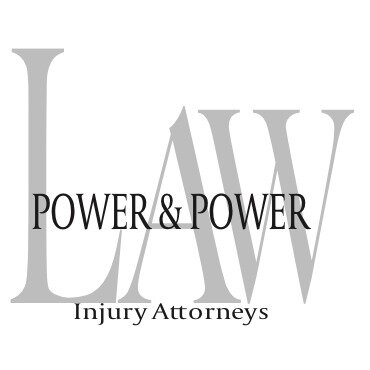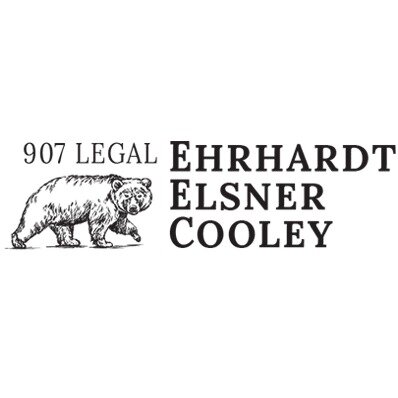Best Workers Compensation Lawyers in Alaska
Share your needs with us, get contacted by law firms.
Free. Takes 2 min.
Or refine your search by selecting a city:
List of the best lawyers in Alaska, United States
About Workers Compensation Law in Alaska, United States
Workers Compensation in Alaska is a system designed to protect employees who are injured or become ill as a result of their jobs. This law requires most employers to carry insurance that provides medical care, wage replacement, and rehabilitation services to workers who suffer from work-related injuries or occupational diseases. The Alaska Workers Compensation Act governs these rules and is enforced by the Alaska Workers' Compensation Board and the Alaska Division of Workers' Compensation. The goal is to ensure that injured employees receive benefits quickly and efficiently, without the need for lengthy lawsuits.
Why You May Need a Lawyer
While the Alaska Workers Compensation system aims to be straightforward, there are situations where legal assistance may be necessary. Common scenarios include:
- Your workers compensation claim is denied or disputed by your employer or the insurance company.
- You receive less in benefits than you believe you are entitled to.
- Your medical treatments or procedures are being delayed or denied.
- You face retaliation or discrimination from your employer after filing a claim.
- There are conflicting medical opinions about your injury, disability rating, or ability to return to work.
- You have preexisting conditions that are complicating your claim.
- You are unsure about your rights or the next steps in the process.
- Your injury is serious and may lead to long-term or permanent disability.
- Your employer lacks proper workers compensation insurance.
- You have questions about settlements or lump sum payments.
An experienced workers compensation lawyer can help you navigate the legal process, ensure proper documentation, represent you at hearings and negotiations, and protect your rights.
Local Laws Overview
Alaska's Workers Compensation laws have unique features that workers and employers must understand:
- Coverage: Nearly all employers must carry workers compensation insurance, with limited exceptions such as some self-employed individuals and independent contractors.
- Benefits: Benefits may cover medical expenses, wage replacement (temporary total or partial disability), permanent impairment, vocational rehabilitation, and, in tragic cases, death benefits for surviving dependents.
- Reporting Deadlines: Injured workers must report their injury to their employer as soon as possible, generally within 30 days, and file a claim within two years of the injury or illness.
- No-Fault System: Workers do not need to prove their employer was at fault but are limited to compensation through the system rather than suing in civil court, with rare exceptions.
- Dispute Resolution: Disputes are handled by the Alaska Workers' Compensation Board, which may conduct hearings to resolve contested claims.
- Medical Providers: Workers may choose their own healthcare provider, but there are rules governing changes in provider and the scope of treatment coverage.
- Retaliation Protection: The law prohibits employers from firing or discriminating against employees for filing a workers compensation claim.
Understanding these local rules is crucial for maximizing your benefits and protecting your rights.
Frequently Asked Questions
What is covered by Alaska workers compensation?
Medical treatment, partial wage replacement, permanent impairment benefits, vocational retraining, and, for fatal injuries, death benefits for dependents are covered if the injury or illness is work-related.
How do I file a workers compensation claim in Alaska?
Immediately report your injury to your employer, seek medical attention, and complete the required Report of Occupational Injury or Illness. You or your employer should submit this to both the insurance company and the Alaska Workers' Compensation Division.
What if my claim is denied?
If your claim is denied, you may request a hearing and appeal the decision to the Alaska Workers' Compensation Board. You may benefit from consulting an attorney to strengthen your case.
Am I eligible for benefits if I was at fault for the accident?
Because Alaska is a no-fault system, you are usually eligible for benefits even if the accident was partially or wholly your fault, as long as the injury occurred in the course of employment.
Can I choose my own doctor?
Yes, you generally have the right to select your own health care provider for work-related injuries in Alaska. There are some restrictions on changing providers after your initial choice.
How long do I have to file a claim?
You should report your injury to your employer within 30 days and file a claim with the Board within two years from the date of injury or knowledge of illness.
What benefits am I entitled to if I am permanently disabled?
You may be eligible for permanent partial impairment (PPI) or permanent total disability (PTD) benefits, depending on the severity and impact of your injury.
What should I do if my employer does not have workers compensation insurance?
You should still report your injury and contact the Alaska Workers' Compensation Division for guidance. There are funds available for injured workers whose employers lack required coverage.
Can my employer retaliate against me for filing a claim?
No. It is illegal for employers to fire, demote, or otherwise mistreat you for pursuing your lawful right to workers compensation.
Should I settle my workers compensation case?
Settling is a major decision that can affect your future rights. You should consult with an attorney to understand the full implications and ensure that you receive a fair settlement.
Additional Resources
- Alaska Workers' Compensation Division - handles claims, provides forms, and helps resolve disputes.
- Alaska Workers' Compensation Board - conducts hearings and makes binding legal decisions.
- Alaska Bar Association - can provide referrals to qualified workers compensation attorneys.
- State-approved ombudsman services - offer free assistance to workers navigating the claims process.
- Occupational Safety and Health Section (AKOSH) - offers workplace safety information and investigation of workplace hazards.
- Legal services organizations - may offer free or low-cost legal representation to qualifying individuals.
Next Steps
If you have suffered a work-related injury or illness in Alaska, act quickly and take the following steps:
- Report your injury or illness to your employer as soon as possible.
- Obtain immediate medical care and keep thorough records of all diagnoses and treatments.
- File the required forms with your employer and the Alaska Workers' Compensation Division within applicable deadlines.
- Gather all documents related to your injury, employer correspondence, and medical records.
- If you face denial, delays, or retaliation, or if your injury is severe, consider consulting a workers compensation attorney with experience in Alaska law.
- Contact the relevant state resources listed above if you need guidance or encounter difficulties.
Remember, workers compensation is your right under Alaska law. Legal advice from a qualified professional can ensure your interests are protected and help you receive the benefits you deserve.
Lawzana helps you find the best lawyers and law firms in Alaska through a curated and pre-screened list of qualified legal professionals. Our platform offers rankings and detailed profiles of attorneys and law firms, allowing you to compare based on practice areas, including Workers Compensation, experience, and client feedback.
Each profile includes a description of the firm's areas of practice, client reviews, team members and partners, year of establishment, spoken languages, office locations, contact information, social media presence, and any published articles or resources. Most firms on our platform speak English and are experienced in both local and international legal matters.
Get a quote from top-rated law firms in Alaska, United States — quickly, securely, and without unnecessary hassle.
Disclaimer:
The information provided on this page is for general informational purposes only and does not constitute legal advice. While we strive to ensure the accuracy and relevance of the content, legal information may change over time, and interpretations of the law can vary. You should always consult with a qualified legal professional for advice specific to your situation.
We disclaim all liability for actions taken or not taken based on the content of this page. If you believe any information is incorrect or outdated, please contact us, and we will review and update it where appropriate.
Browse workers compensation law firms by city in Alaska
Refine your search by selecting a city.















